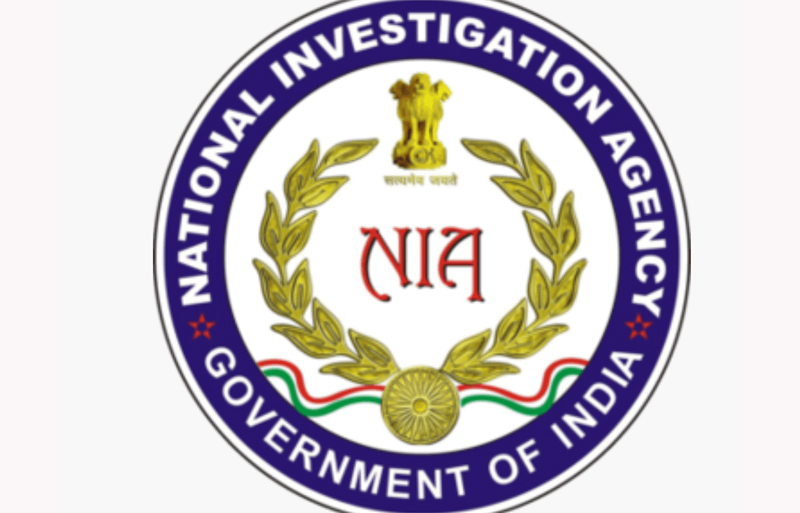‘Nijjar not religious figure but terrorist’
NEW DELHI/CHANDIGARH, Sept 23:
Tightening its noose around Canada-based “designated individual terrorist” Gurpatwant Singh Pannu, the NIA confiscated a house and land of the self-styled general counsel of the outlawed Sikhs for Justice (SFJ) outfit in Punjab’s Amritsar and the Union Territory of Chandigarh today, an official said.
The action, which comes as a big boost to the country’s crackdown on the terror and secessionist network being operated from various countries, including Canada, followed confiscation orders passed by the Special NIA Court, SAS Nagar, Mohali (Punjab), a spokesperson of the National Investigation Agency (NIA) said.
The official said the properties confiscated include a 46-kanal (5.7 acres) agricultural land at Khankot village in Amritsar and a one-fourth share of a house in Chandigarh’s sector 15/C area.
These properties were earlier attached following orders passed by the government in two different cases, the spokesperson said, adding that they have now been confiscated on the court’s orders under the relevant section of the Unlawful Activities (Prevention) Act (UAPA) in a case registered on April 5, 2020.
This is the first time that properties of an absconding accused of the NIA have been confiscated under section 33(5) of the UAPA.
The case was originally registered on October 19, 2018 under various Sections of the Indian Penal Code at the Sultanwind police station in Amritsar city and later, transferred to the NIA. A total of 10 accused, including Pannu, have so far been chargesheeted in the case.
Pannu has been on the NIA’s radar since 2019, when the anti-terror federal agency registered its first case against the terrorist, who has been playing a major role in promoting and commissioning terror acts and activities, and spreading fear and terror in Punjab and elsewhere in the country through his threats and intimidation tactics.
Non-bailable warrants of arrest were issued against Pannu by the Special NIA Court on February 3, 2021 and he was declared a “Proclaimed Offender” (PO) on November 29 last year.
“Investigations have revealed that Pannu’s organisation, Sikhs for Justice, was misusing cyberspace to radicalise gullible youth and instigate them to undertake terrorist crimes and activities,” the NIA spokesperson said.
The official said the investigations have further revealed that Pannu was the main handler and controller of the SFJ, which was declared an “Unlawful Association” by the Centre on July 10, 2019.
“Pannu, who was declared a ‘designated individual terrorist’ on July 1, 2020, has been actively exhorting Punjab-based gangsters and youth over the social media to fight for the cause of the independent state of Khalistan, challenging the sovereignty, integrity and security of the country,” the spokesperson said.
In recent days, the official said Pannu has been in the news for issuing blatant threats to senior Indian diplomats and Government functionaries in public forums.
“He had also threatened Canadian Hindus a few days ago, asking them to leave Canada and claiming that they had adopted a ‘jingoistic approach’ by siding with India,” the spokesperson said.
The NIA action came amid an escalating diplomatic row between India and Canada over the issue of the killing of Khalistani extremist Hardeep Singh Nijjar by unidentified assailants in British Columbia in June.
Meanwhile, Khalistani separatist Hardeep Singh Nijjar, whose killing led to a row between India and Canada, was not a religious and social figure but a terrorist who was involved in running terrorist training camps and funding terror acts, sources have said.
Nijjar was a close associate of Gurdeep Singh alias Deepa Heranwala, who was involved in the killing of around 200 people in Punjab during the late 1980s and early 1990s.
Heranwala belonged to the banned Khalistan Commando Force.
Nijjar, who was killed by unidentified assailants on June 18 at a parking lot of a Sikh gurdwara in British Columbia, had escaped to Canada in 1996 fearing arrest by police here and indulged in illegal activities like drug smuggling and extortion in Canada to arrange funding for terrorist activities, sources said.
Nijjar was also involved in training youths at a terror camp in British Columbia to carry out attacks in India, they said.
Over the years, Nijjar assumed the role of ‘Operation Chief’ of Khalistan Tiger Force, or KTF, a banned terror group.
In 2020, he was accused by the Government of being actively involved in “operationalising, networking, training and financing” KTF members.
In 2012, Nijjar visited Pakistan and came in touch with Jagtar Singh Tara, chief of Babbar Khalsa International, another banned terror group.
Tara supplied him arms and trained him in assembling IED in 2012 and in 2013. He sent US-based Harjot Singh Birring to Canada to train Nijjar in operating hand-held GPS device.
Nijjar also sent 1 million Pakistani rupees to Tara, sources said.
In 2014, Nijjar planned a terror attack on Dera Sacha Sauda headquarters in Sirsa in Haryana on directions of Tara. However, the attack could not take place because Nijjar was denied Indian visa, they said.
Nijjar allegedly muscled his way into the post of president of the local gurdwara in Surrey in Canada in 2021, forcibly deposing his cousin, Raghbir Singh Nijjar, the incumbent, with threats of violence.
The National Investigation Agency has registered several cases against Nijjar as well as issuing an Interpol Red Corner Notice for raising a module in Canada involving Khalistani separatist Mandeep Singh Dhaliwal.
Nijjar was also the head of Canada chapter of Sikhs For Justice, another banned terrorist organisation.
He had also organised violent anti-India protests in Canada and threatened Indian diplomats, sources said.
Nijjar had also given a call to ban Indian Embassy officials to participate in various programmes organised by local gurdwaras in Canada.
India and Canada are embroiled in a diplomatic row over the killing of Khalistani Nijjar in June.
The row erupted following Canadian Prime Minister Justin Trudeau’s allegations of a “potential” involvement of Indian agents in his killing. (PTI)



